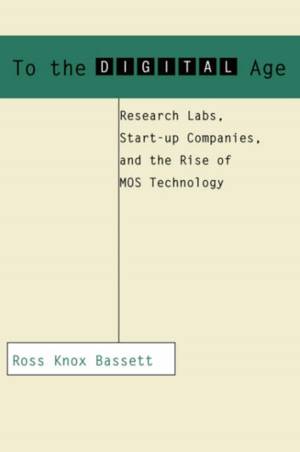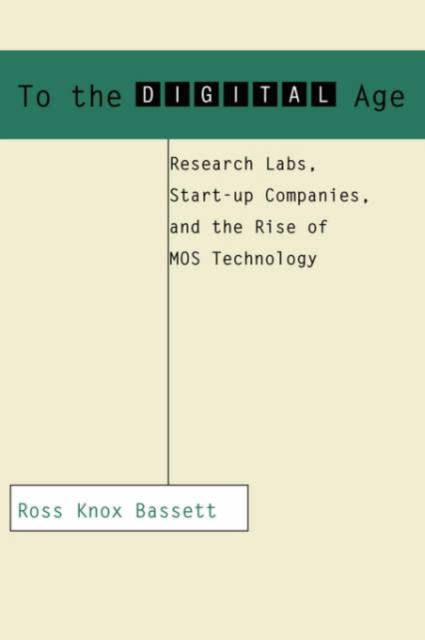
- Retrait gratuit dans votre magasin Club
- 7.000.000 titres dans notre catalogue
- Payer en toute sécurité
- Toujours un magasin près de chez vous
- Retrait gratuit dans votre magasin Club
- 7.000.000 titres dans notre catalogue
- Payer en toute sécurité
- Toujours un magasin près de chez vous
To the Digital Age
Research Labs, Start-Up Companies, and the Rise of Mos Technology
Ross Knox Bassett
51,95 €
+ 103 points
Format
Description
Without the transistor to regulate the flow of current in electronic systems, there would be no miniaturization of electronics. But the metal-oxide-semiconductor (or simply MOS) transistor-it replaced the bipolar transistor, which itself had made obsolete the hot and bulky vacuum tube--Bassett describes as "the base technology" of the electronic revolution of the late-twentieth century. From the calculator to the digital watch to the microprocessor, he writes, "the rise of the MOS transistor has made what was once ludicrous unremarkable." Bassett's work combines the technological with the corporate--the breakthroughs of individual innovators as well as the research and development power of companies like IBM, Intel, and Fairchild. Until now, no one has attempted a book-length scholarly history of this formidable subject. Bassett approaches the task with excellent credentials-a bachelor of science degree in electrical engineering and a PhD in the history of science. From our readers' reports: "An elegant narrative," Bassett's work explores "the invention of the MOS transistor, its incorporation into integrated circuits, and the tremendously positive market reaction to the availability of these circuits. . . . The story is tightly told, using contemporary literature and the results of interviews done by the author." Bassett relates the technical material "with skill and deftness. The industrial research and development process description is excellent." --Arthur L. Norberg Emeritus director of the Charles W. Babbage Institute, University of Minnesota "Were Ross Bassett to have accomplished no more than a documented history of MOS (metal oxide semiconductor) technology, explaining in particular its unexpected triumph over the bipolar transistor as the basis for the semiconductor industry, he would have made a substantial contribution to the history of electrical engineering and the history of computing. But he has achieved much more than that. He has embedded the invention, development, and ultimate dominance of the MOS in the main themes of the history of modern technology, deepening our understanding of the complex process of innovation in the corporate setting. He has managed to get down to the bench level when discussing the technology and up into the executive offices when discussing corporate strategies. As any good history does, it tells us where we are by telling us how we got here, replacing legend with critical understanding. --Michael S. Mahoney Princeton University
Spécifications
Parties prenantes
- Auteur(s) :
- Editeur:
Contenu
- Nombre de pages :
- 440
- Langue:
- Anglais
- Collection :
Caractéristiques
- EAN:
- 9780801886393
- Date de parution :
- 01-05-07
- Format:
- Livre broché
- Format numérique:
- Trade paperback (VS)
- Dimensions :
- 152 mm x 229 mm
- Poids :
- 639 g







